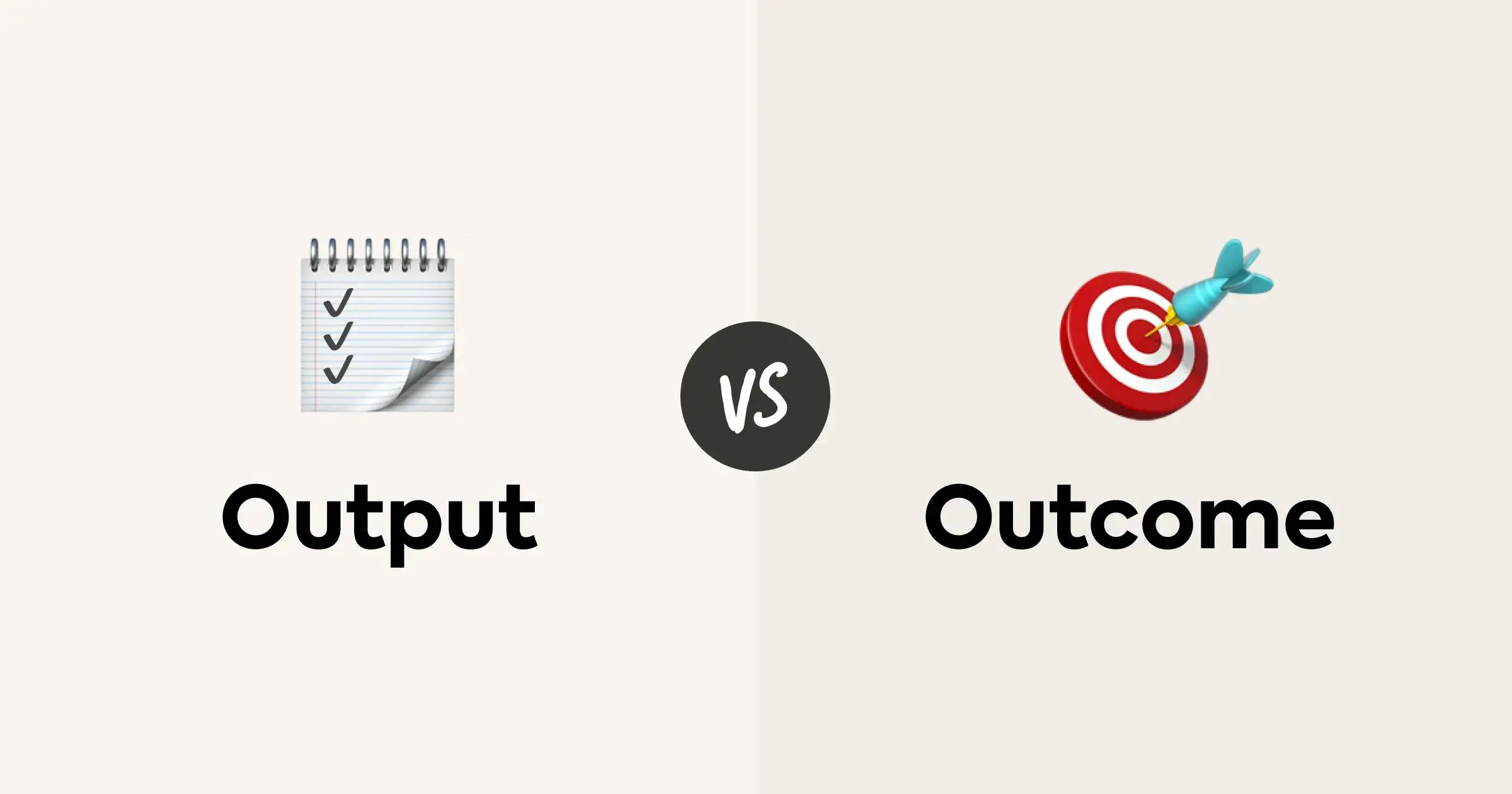For decades, success at work has been measured by outputs: hours worked, emails sent, projects completed. These are tidy numbers, easy to track and display on dashboards. But they are often little more than proxies for what really matters — the value created.
This obsession with “productivity theatre” convinces leaders they’re making progress while masking the deeper question: what outcomes are we actually achieving?
Why Outputs Fail Us
Outputs are activity-based. They answer: what did we do?
- We launched 12 marketing campaigns.
- We processed 1,000 tickets.
- We ran 15 training sessions.
But outputs rarely tell us whether those actions made a meaningful difference. A marketing campaign is only valuable if it deepens customer trust. Training only matters if it changes behaviour. Tickets resolved quickly don’t matter if the customer walks away unsatisfied.
The Courage to Measure Outcomes
Shifting from output to outcome requires a leap of leadership courage. Outcomes are harder to define. They force alignment on purpose and demand transparency. They also reveal uncomfortable truths.
For example:
- Did our campaigns actually drive loyalty and revenue?
- Did our training sessions improve performance?
- Did our technology investment truly make employees’ work easier?
These are confronting questions. But they’re the only ones that matter.
Why This Matters Now
The urgency of this shift is greater than ever. Talent is scarce. Employees demand meaningful work. Customers have infinite choice. Leaders who cling to outputs will bleed both people and relevance.
Outcomes, on the other hand, unlock compounding effects:
- Clarity: Everyone knows the true measure of success.
- Focus: Priorities sharpen and busywork fades.
- Innovation: Teams experiment freely, because the goal is impact, not activity.
- Engagement: Work feels purposeful again.
A Practical Shift for Leaders
The good news: you don’t need to overhaul your entire business overnight. Start with one question:
“What change are we really trying to create?”
Ask this at the start of every project. Reframe metrics around impact instead of activity. Reward teams not for the volume of their work, but for the difference their work makes.
When leaders adopt this mindset, the transformation is profound. Work stops being about filling calendars or ticking boxes. It becomes about progress, purpose, and performance that endures.




